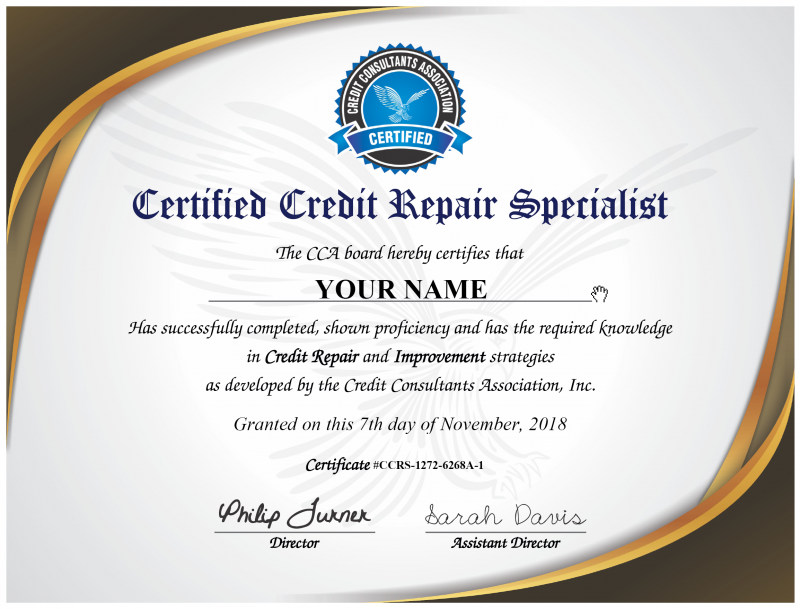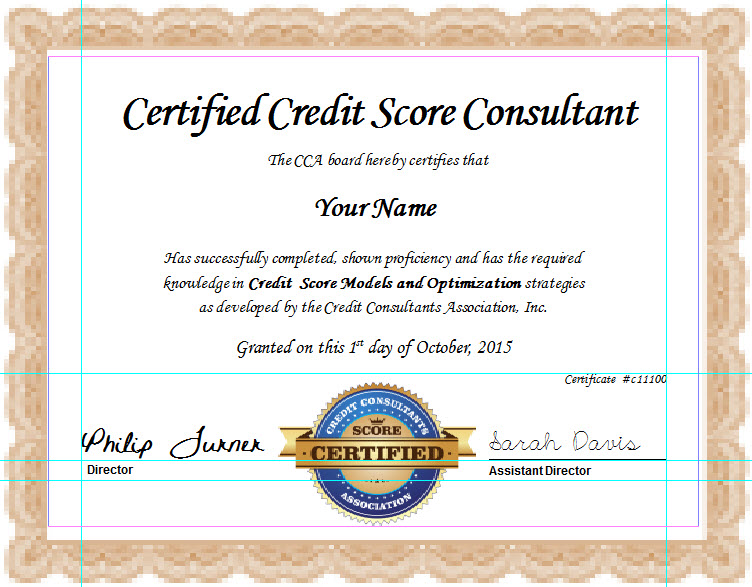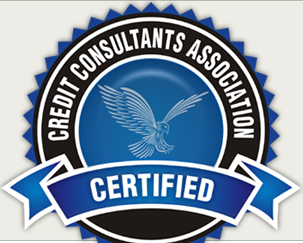If you’re looking to enter the world of credit repair, obtaining a credit repair license is essential. This licensure grants you the ability to legally assist individuals and businesses in improving their credit scores and repairing their credit history. By becoming licensed, you gain the necessary expertise and credibility to guide your clients through the complex process of credit repair, ultimately helping them regain control over their financial future.

Understanding the Concept of Credit Repair Licensing
Definition of credit repair
Credit repair refers to the process of improving an individual’s creditworthiness and overall credit profile. It involves identifying and rectifying errors, inaccuracies, or questionable items on a person’s credit report. By working with creditors, credit bureaus, and other financial institutions, credit repair aims to restore a person’s creditworthiness and enable them to access better borrowing terms and opportunities.
Why a credit repair license is important
Obtaining a credit repair license is crucial for individuals or companies offering credit repair services. A license demonstrates credibility, professionalism, and adherence to industry standards. It establishes trust with both clients and regulatory authorities. Furthermore, having a credit repair license ensures compliance with legal and ethical requirements, protecting both the service provider and the consumers.
Functions of a credit repair license
A credit repair license enables individuals or companies to legally offer credit repair services to consumers. It establishes the right to represent and advocate on behalf of clients during the credit repair process. Licensed professionals can dispute inaccuracies, negotiate with creditors, and provide guidance and advice to improve clients’ credit standing. Additionally, a credit repair license allows access to credit reports and other relevant financial information necessary for effective credit repair.
Requirements for Obtaining a Credit Repair License
Basic requirements for a credit repair license
The requirements for obtaining a credit repair license may vary depending on the jurisdiction. However, some common basic requirements include being at least 18 years old, possessing a high school diploma or equivalent, and having a clean criminal record. These requirements ensure that individuals entering the credit repair profession are of legal age, sufficiently educated, and uphold a level of trustworthiness.
Educational requirements
In addition to the basic requirements, educational qualifications are often necessary to obtain a credit repair license. These qualifications may include completing relevant courses or obtaining a degree in finance, accounting, or a related field. The purpose of educational requirements is to ensure applicants have a solid understanding of personal finance, credit laws, and ethical considerations necessary for effective credit repair.
Certification and exams
Many jurisdictions require individuals to acquire certification in credit repair before being eligible for a credit repair license. Certification programs usually involve rigorous training, exams, and assessments to establish competence and knowledge in credit repair practices. These certifications not only enhance the credibility of professionals but also ensure their ability to provide quality credit repair services to clients.
Credit Repair Licensing Process
Steps to obtain a credit repair license
The process of obtaining a credit repair license typically involves several steps. First, individuals must research the specific licensing requirements and regulations in their jurisdiction. This includes understanding the education, certification, and examination requirements, as well as any other prerequisite criteria. Once familiar with the requirements, individuals should gather the necessary documentation, such as identification, educational certificates, and certifications. Then, they can proceed to submit an application to the appropriate licensing authority, paying any required fees and providing supporting documents as needed.
Duration of the licensing process
The duration of the credit repair licensing process varies depending on the jurisdiction and the efficiency of the licensing authority. On average, it may take several weeks to several months for the application to be processed, reviewed, and approved. It is important for individuals to plan accordingly and allow sufficient time for the licensing process to avoid any delays in starting their credit repair business.
Cost of the credit repair license
The cost of obtaining a credit repair license also varies by jurisdiction. Licensing fees may range from a few hundred to several thousand dollars, depending on the location and the complexity of the licensing process. In addition to the initial licensing fees, individuals should also consider ongoing costs such as renewal fees, continuing education requirements, and any other expenses associated with maintaining a valid credit repair license.
States That Require Credit Repair License
Examining state-based licensing
Different states within a country may have their own unique requirements for credit repair licensing. It is essential to understand and comply with the specific regulations and licensing processes established by each state. State-based licensing ensures that credit repair professionals are knowledgeable about state-specific credit laws and regulations, as well as protects consumers from fraudulent or unethical practices.
States that require credit repair licenses
While the specific list of states may change over time, currently, several states within the United States require credit repair professionals to hold a license. These states include California, Texas, Florida, Michigan, and New York, among others. It is important for individuals interested in offering credit repair services to familiarize themselves with the licensing requirements in their respective states to ensure compliance with the law.
Regulations in different states
In addition to licensing requirements, different states may have additional regulations and restrictions on credit repair practices. For example, some states have specific laws regarding fees that can be charged for credit repair services or require the use of written contracts with clients. Understanding the specific regulations in each state is crucial to operate legally and ethically within that jurisdiction.

Importance of Adhering to Credit Repair Licensing Laws
The role of the laws governing credit repair
Laws governing credit repair define the parameters within which credit repair professionals must operate. These laws protect consumers from fraudulent or deceptive practices and ensure that credit repair services are conducted in a fair and transparent manner. By adhering to credit repair licensing laws, professionals not only comply with legal requirements but also contribute to a trustworthy and reputable credit repair industry.
Penalties for violating licensing laws
Violating credit repair licensing laws can result in severe penalties, both financially and legally. These penalties may include fines, lawsuits, loss of license, and damage to reputation. Moreover, engaging in illegal credit repair practices can harm clients and result in further damage to their credit profiles. It is crucial for credit repair professionals to understand and strictly adhere to the licensing laws to avoid negative consequences.
How to ensure adherence to licensing laws
To ensure adherence to credit repair licensing laws, professionals should stay updated on the latest regulations and requirements in their jurisdiction. This can be done by regularly reviewing official websites, attending industry conferences and seminars, and networking with other professionals in the field. Additionally, professionals should maintain accurate and detailed records, follow ethical standards, and seek legal advice when needed to navigate complex compliance issues.
Difference Between Credit Repair and Credit Counseling
Defining credit counseling
Credit counseling involves providing individuals or businesses with guidance and education on various aspects of personal finance and credit management. Credit counselors work with clients to develop personalized financial plans, provide resources to improve financial literacy, and negotiate with creditors to establish more favorable terms. Unlike credit repair, which focuses on correcting errors on credit reports, credit counseling aims to empower individuals to manage their finances effectively and prevent future credit problems.
Comparing credit repair to credit counseling
While credit repair and credit counseling share the goal of improving an individual’s credit standing, they differ in their approaches and focus. Credit repair primarily focuses on addressing inaccuracies or negative items on a person’s credit report, involving the dispute process with credit bureaus and creditors. Credit counseling, on the other hand, emphasizes education, budgeting, and long-term financial planning. Both credit repair and credit counseling can be valuable services, depending on an individual’s specific needs and circumstances.
Choosing between credit repair and credit counseling
Choosing between credit repair and credit counseling depends on the specific financial situation and goals of an individual or business. If there are inaccuracies or errors on a credit report that need correction, credit repair may be the appropriate choice. However, if someone is struggling with managing debt, wants to learn better financial habits, or needs assistance with budgeting and negotiating with creditors, credit counseling may be more beneficial. It is advisable to consult with professionals in both fields to determine the most suitable option.

Different Credit Repair Licensing Bodies
The role of licensing bodies
Licensing bodies play a crucial role in overseeing and regulating credit repair professionals. They ensure that individuals and companies offering credit repair services meet the necessary requirements, including education, certification, and ethical standards. Licensing bodies also provide support, guidance, and resources to professionals to enhance their knowledge and professionalism in the credit repair industry.
Notable credit repair licensing bodies
Several notable credit repair licensing bodies exist, each with its own set of criteria and standards. These bodies often offer certifications, provide educational resources, and serve as a central authority for credit repair professionals. Some well-known credit repair licensing bodies include the National Association of Credit Services Organizations (NACSO), the Credit Consultants Association (CCA), and the National Federation of Credit Counselors (NFCC). These bodies work to establish and maintain industry standards and ensure that professionals meet the necessary qualifications.
Difference in licensing criteria among these bodies
Although credit repair licensing bodies share the goal of promoting professionalism and ethical practices, their specific criteria and standards may vary. Some may emphasize educational qualifications, while others prioritize experience or the completion of specific courses. It is important for individuals seeking a credit repair license to research each licensing body’s requirements and choose the one that aligns with their professional goals and aspirations.
Maintaining and Renewing a Credit Repair License
When and how to renew your license
Credit repair licenses typically have an expiration date and require renewal to remain valid. The renewal process may vary depending on the jurisdiction but generally involves submitting a renewal application, paying the renewal fee, and possibly providing evidence of ongoing education or training. Professionals should carefully track the expiration date of their credit repair license and initiate the renewal process well in advance to ensure continuous compliance with licensing requirements.
Factors that can lead to license revocation
Various factors can lead to the revocation of a credit repair license. This may include engaging in fraudulent or unethical practices, violating licensing laws or regulations, or being involved in criminal activities related to credit repair services. It is essential for professionals to maintain the highest ethical standards, comply with the law, and prioritize the best interests of clients to avoid compromising their license and reputation.
Steps to regain a revoked license
If a credit repair license has been revoked, professionals may have the opportunity to regain their license through a process determined by the licensing authority. This process may involve submitting an application for reinstatement, paying any outstanding fees or fines, and potentially completing additional education or training requirements. Individuals should consult with legal professionals and adhere to all necessary steps to demonstrate their commitment to rectifying any previous violations and regain their license.

Using Your Credit Repair License
How to begin repairing credit for clients
Once licensed, credit repair professionals can begin assisting clients in repairing their credit. This typically involves obtaining clients’ credit reports, identifying inaccuracies or negative items, and disputing these with the credit bureaus and creditors. Professionals may also provide guidance and advice on improving credit scores, managing debt, and establishing positive credit habits. Effective communication, attention to detail, and a deep understanding of credit repair laws and strategies are crucial when working with clients.
Marketing your credit repair services
Marketing credit repair services can help credit repair professionals attract new clients and establish their reputation in the industry. Professionals can utilize various marketing channels, such as creating a professional website, using social media platforms, attending networking events, and participating in community outreach programs. It is important to ensure that all marketing efforts comply with applicable laws and regulations, avoiding misleading or deceptive advertising practices.
Ethics and professional responsibility
As licensed credit repair professionals, maintaining ethical standards and acting responsibly are of the utmost importance. Professionals should prioritize the best interests of their clients, ensure accurate representation of their services, and maintain confidentiality and privacy. It is essential to treat clients with respect, honesty, and transparency throughout the credit repair process, fostering a trusting and professional relationship.
Case Studies on Credit Repair Licensing
Review of successful credit repair businesses
Numerous successful credit repair businesses have emerged in recent years, illustrating the positive impact of credit repair licensing. These businesses have demonstrated their ability to navigate the legal landscape, provide effective credit repair services, and maintain high levels of customer satisfaction. By adhering to licensing requirements and regulations, these businesses have established themselves as leaders in the industry and generated positive outcomes for their clients.
Challenges experienced by unlicensed credit repair companies
Unlicensed credit repair companies often face numerous challenges in the industry. Without proper licensing, they may encounter legal consequences, limited access to credit reports and consumer information, and a lack of credibility in the eyes of both clients and regulatory authorities. Operating without a license not only jeopardizes the reputation and financial viability of these companies but also puts clients at risk of falling victim to fraudulent or unethical practices.
How licensing has transformed the credit repair industry
The introduction of credit repair licensing has had a transformative effect on the credit repair industry. Licensing fosters professionalism, accountability, and consumer protection. It ensures that credit repair professionals meet a certain standard of knowledge, expertise, and ethical conduct. As a result, licensed credit repair businesses have become trusted advisors, providing valuable services to clients and elevating the reputation and perception of the industry as a whole.

